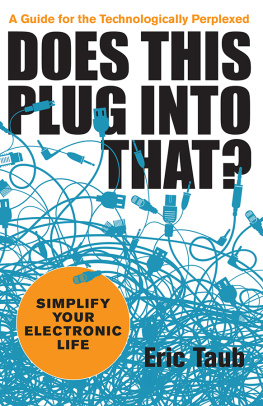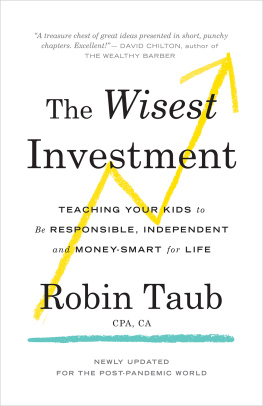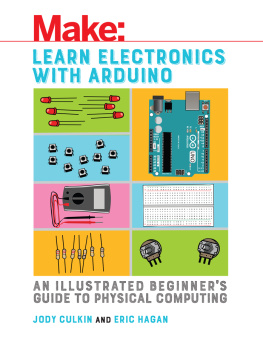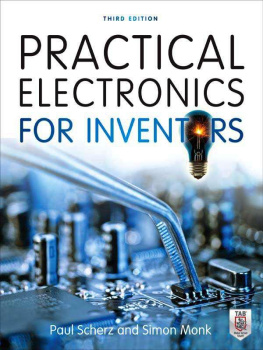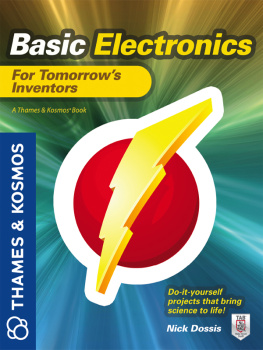
Other Books by Eric Taub
Gaffers, Grips, and Best Boys: Who Does What in the Making of a Motion Picture
Taurus: The Making of the Car That Saved Ford
Contributor to:
The New York Times Circuits: How Electronic Things Work
The New York Times Practical Guide to Practically Everything: The Essential Companion to Everyday Life
To Carol, the love of my life
Technology makes it possible for people to gain control over everything, except over technology.
John Tudor
Once a new technology rolls over you, if youre not part of the steamroller, youre part of the road.
Stewart Brand


Does this plug into that? How many times have you asked yourself that question?
Probably often. If technology is supposed to change our lives for the better, then why is so much of it such a pain to operate?
Perhaps with the exception of Apple, most consumer electronics companies seem to have no idea how the nontechie world lives. Just because they get it, they think everyone else should as well. And if you dont, well, who cares about you anyway?
Kids get it. Children not even able to talk know how to swipe their fingers across cell phones, imitating their parents looking at pictures on their Android smartphones or iPhones. But if youre not of that generation, chances are its all a bit overwhelming, and if youve never heard of an Android phone, then its definitely overwhelming. You know that the world is starting to pass you by when you tell a younger family member how exciting it was to get your first extension phone, and he asks, Whats an extension phone?
The world entered an electronics revolution when technology changed from analog to digital. That began to widely occur in the 1980s, when personal computers were first introduced to the public. Before that, electronics progressed slowly. You may have graduated from a standard phonograph, to a hi-fi record player, to a stereo system, but even as you did, how they operated remained the same. Reel-to-reel audiotape, cassette players, and snapshot cameras were easy to use and easy to understand.
The switch to digitalthe encoding of all information as a series of ones and zerosbrought with it a level of previously unimaginable features and complexity. Not only can the sounds and visuals of life be recorded digitally, but now digital attributes can course throughout an entire product.
For example, using an Android phone, you can take a high-resolution photograph and then, while viewing it, alter the tones and apply various effects; you can make the photo look old, saturate the colors, or turn it into a cartoon-like image. You can do these things because you can manipulate a digital copy of the image while viewing it on a screen.
Similarly, you can cut and paste text on screen, change the font, size, and color, and add a beautiful, visually complex border to a manuscript youre typing on a computer. Using a typewriter, the best you could do was to physically cut out text and then move it by taping it to a new location on another physical piece of paper.
Although those examples may be obvious today, they illustrate the power of the digital world; by turning everything into digital code, not only can you create works of art in a device the size of a pack of cigarettes, but you can turn on your oven or program your HDTV recorder from across the globe. You can recreate the sound of a large concert hall in your apartment. And one day, youll be able to take the activities youve started at homewhether thats a movie youre watching, a book youre reading, or your blood pressureand continue them as you move throughout your day, from the house to the car, to a flight across the country.
With each added feature comes an exponential increase in complexity, which means that learning a new product often becomes a more involved and convoluted task. But if youre the type of person who wants to stay on top of all the latest gadgets and trends and technologies, theres an easy way to do it.
Just read this book.
Does This Plug into That? isnt an idiots guide to technology, because if youre reading this, youre probably not an idiot. Rather, youre probably someone who wants to use a lot of technology thats popular today, but you want it to just work, without having to know a lot of acronyms, arcane terms, and the theory behind the technology.
Think about it: You know how to drive a car, but you probably dont know how to fix one. When TVs were picture tube sets, you knew how to change channels, even if you didnt know how the picture got on the screen. So why are you now expected to know which cable to use to connect a Blu-ray player to your TV or understand incomprehensible instructions to set up a wireless home network?
When I was researching my book Taurus: The Making of the Car That Saved Ford , the companys head of design asked me whether I knew how they decided where on the dashboard to put the air conditioner vent. I didnt.
We dont decide, the designer told me. The engineers decide to put it wherever its easiest for them to place it. The company was sacrificing the ability to create a good design, one that would please a customer, in order to make life a little easier for its engineers. Thats too often the state of todays technology pleasures. The engineers design the products and write the manuals, and then they dont understand why no one can figure out how to use them.
If you want an understanding of how things work and what obscure abbreviations like BD-Live, HDMI, and TCP/IP actually mean, dont read this book. But if you want a helping hand to simply and easily get things up and running, a technological Guide for the Perplexed to easily integrate gadgets into your life, and an understanding of why in the end any of this is important,

The Computer: Its What Makes Everything Possible
I was the first person at the USC School of Religion to do my Ph.D. qualifying exams on a computer. People thought this was cutting edge.
Technology for me is simply a cost/benefit analysis. I love the Internet. Its right next to in importance. I get to meet other peoples minds. In two hours I can become fairly well educated. Its electrifying.
Rabbi Mordecai Finley, Los Angeles
A computer is like an Old Testament god, with a lot of rules and no mercy.
Joseph Campbell
The home computer has long since passed from an expensive luxury to a necessary tool for everyone in modern society. Whether you live in the United States or Uzbekistan, not having a computer cuts you out of the mainstream of life.
Young adults in Vietnam create animated films in their homes for Hollywood studios and e-mail the files back to North America. Students in undeveloped countries are using inexpensive laptops powered by solar cells to help them learn. And of course, everyone is exposed to this through Facebook, Twitter, and many other social media Web sites.
Not owning a computer, or some sort of computing device such as a smartphone or tablet, is as debilitating as not owning a telephone eventually became in the twentieth century. You simply cant communicate effectively without one.

